We Don’t Allow Dual Membership
by Rachael Day
My faith journey is not that unusual. It started
with being born in the covenant to an orthodox and loving Mormon family. I was raised in Utah during the 80's and 90's in a time when everyone and everything in my life was touched by religion, and there was never a reason to question it. My adult years and the birth of my daughters brought into sharp focus the patriarchy of my church, and the knowledge that while I might be able to ignore it for myself I couldn't choose that for my little ones. Modern day issues surrounding the LGBTQ community, financial scandals, and abuse cover ups led to a deep search into church history to try and make sense of it all. There were no anti-Mormon lies, there was just history, and most of it on the church's own website. Once we knew we no longer believed it was true, and could no longer support the organization as good, it was time to leave. We went from tithe paying, temple attending, calling holding members, to gone in the space of a week.
It took every last scrap of faith in us to even attempt to find a new place of worship, and my list of requirements was high. My family eventually landed at a Presbyterian church with a female pastor, full membership without exclusions to the LGBTQ participants, financial transparency, background checks for everyone involved with youth, and a congregation leaning heavily into stage 5 believers. My slightly agnostic self is fully welcomed, and I'm encouraged to take what serves my soul and leave the rest behind.
My husband, out of a desire to serve, joined as an official member last year and our Christmas card that we gave to friends and neighbors had a small line that stated he enjoyed serving there. A new bishop, and previous friend, in our old ward was called, and in his first week he researched excommunication in the handbook and found an obscure line that said he 'may' excommunicate someone for apostasy for joining another church. Not 'must', not 'shall', he had his own discretion. He took the information to the stake president for confirmation and permission, and used that to call my husband and let him know that "The LDS church doesn't allow dual membership." The only way he knew at all was because we'd given his family a Christmas card and gift.
We hadn't removed our records, it wasn't something on our radar. We love our friends and family who are still members and have been intentionally quiet in our faith journey so as not to impact others’ beliefs. This intrusion into our peace and lives, and the petty targeting of my family as the new bishop made this the top priority in his first week, was deeply hurtful. He could have focused on Christlike love, service, compassion, community, or a thousand other things more worthy of his time. In his theology, that bishop believes he has the literal power and authority to revoke the exaltation, salvation, family bonds, and eternal access to the presence of God. And he thought that was the fitting punishment for my husband daring to serve somewhere else.
We decided that rather than going through the religious trauma and violence of a disciplinary council for a church we no longer attend, and headed by men we no longer believe have power over us, we would resign our entire family. Excommunication is a barbaric and draconian practice, there is no way around it. I frequently hear the phrase "they can leave the church, but they can't leave it alone!" referring to ex-mormons. We tried to leave it alone, to just live our peaceful lives, and they came after us anyway.
For those thinking we just had a bad bishop, please consider that he is exactly what the church gets when they get a perfect bishop. If you have had a 'good' bishop at some point, they were good despite the organization, not because of it. This man is loyal and obedient, even against his own conscience, and he will be rewarded for it. Our family is going to be fine, we will lead blissfully beautiful lives with or without them. The LDS church lost a lot more than we did with this move.
About Her
by Sarah Hale
It May Fall On Deaf Ears
by Sunny
I wrote a letter to the Church about my transgender daughter, thinking that I had seen an email address where people could send feedback about the new policies. I can't find that anywhere, and now I wonder if I was having an overly optimistic dream. Do you know of any such email address? I am still willing to send it, although it may fall on deaf ears.
After listening to your podcast with Laurie Lee Hall and some others that touched on trans issues, I thought maybe this was a better place to send my letter anyway. The letter follows.
I am the mother of a transgender child. I have tried
to write this letter many times, but I have never felt that I could successfully communicate my love for my child, how much she has to offer, and that she is a child of God as worthy of love and dignified treatment as any other person.
Despite my struggle to find the right words, I would like to share my message. I feel it’s a way of showing love, support, and awareness for my child and other transgender people.
My daughter is thoughtful and generous, always looking out for the underdog and donating to all sorts of causes. She is smart, witty, and creative. She writes amazing stories filled with detail, color, and imagination, weaving in ideas from history and cultures all over the world. She thinks in inventive ways that give me new perspectives. She is determined and stands up for herself and others when she believes in her cause. She can be vulnerable and admit her mistakes. She has an incredible memory and analytical skills. She is often insightful beyond her years. She is courageous and faces her fears, despite having more than the average person. Like all of us, she also has her struggles.
When my daughter was young, we could see that she was very intelligent and had some difficulty with social norms and customs. She was diagnosed with autism. She read the Book of Mormon at a very young age and bore her testimony in church about it. People in our ward showered her with praise, and she felt special and accepted.
As she grew up, she read widely and soaked up information like a sponge: religion, science, philosophy, history. At church, she asked questions outside the box. She got some funny looks and felt that her questions were not taken seriously. I feel like a small breach opened, and she began to feel uncomfortable.
People on the autism spectrum often feel as if they don’t belong because they don’t understand typical social norms. It’s often described as feeling like they come from another planet. My daughter started to feel like this at church.
I also began to feel uncomfortable, whether it was me feeling not good enough, feeling that we didn’t fit the Church-family mold, others stepping back, or both, I can’t say.
In the past, I have been crippled by fear, not sure how to love because I am afraid of those who are different or who are not members. But I cannot not love my own daughter…
In seminary one day, my daughter said that she wasn’t sure that she believed that same-sex attraction was wrong. Instead of allowing her to question, discuss, and share her beliefs, she was asked to leave the classroom. I feel like the teacher acted out of fear rather than love. He made my daughter feel that she didn’t belong and that questioning was not okay.
On another occasion, a transgender woman visited our ward and bore her testimony about her love for the Savior. Afterward, I was very happy to see that a woman in our ward got up and thanked her for her testimony. But then our bishop got up and said that the proclamation on the family says that gender is an eternal part of our identity, and we must follow those commandments. I felt as though he had gotten up and publicly shamed the transgender woman and invalidated her testimony. I can’t imagine a bishop calling someone out at the pulpit for, say, drinking alcohol or not keeping the Sabbath day holy.
And yet, I understand the bishop. I have, in my life, said things that were unkind, judgmental, and offensive because I thought that was my duty. Ironically, I thought I was showing that I was not ashamed of the gospel of Christ. Sometimes, the message we get at church is that ensuring compliance is more important than love. In the past, I have been crippled by fear, not sure how to love because I am afraid of those who are different or who are not members.
But I cannot not love my own daughter, “bone of my bones, and flesh of my flesh.” Through years of infertility treatment, I prayed for her. She and her twin sister came as my miracle babies, whom I held in my arms as tiny newborns. As parents do, I felt an overwhelming love for her. I got up with her in the middle of the night when she was sick. I laughed when she rode the training wheels right off her bike. I cried with her when she was bullied. I proudly photographed her with the mayor when she won the book reading contest.
When she told me she felt gender dysphoria, I could not relate, but I tried to understand her. I did not want to invalidate her feelings and experience. Who was I to say what she felt? I was also afraid of the discrimination she would face. I felt the most Christlike way to act was simply to love her, as John 4:18 says, “There is no fear in love; but perfect love casteth out fear.”
My daughter’s twin sister served a mission, and during that time, our missionary daughter was talking to a fellow missionary about LGBTQ+ people. This missionary said that he wanted to take his gun to houses where people flew the Pride (LGBTQ+) flag and shoot the people inside. My daughter was terrified for her sister, for herself, and for our family. She still breaks down crying when she thinks about it. She fears for our safety, and she is beyond sad that someone would interpret the gospel of Christ as justifying this type of hate and violence.
Incidents like these show me that people in the Church (and outside as well) are often filled with fear, misunderstanding, and hate for transgender people. They may not even know a transgender person, but they have a skewed vision that causes them to act in unfair, intolerant, and discriminatory ways. The way we think, talk about, and treat transgender people often makes them outsiders and makes people think it is okay to act this way toward them.
My daughter’s autism is relevant to this situation. People on the autism spectrum are more likely to identify as transgender or gender-diverse than the general population, with some studies showing rates up to six times higher. The medical world has only a limited understanding of autism and gender dysphoria and their intersection. I feel like I should hold my judgment in check for these things that we simply do not understand.
The stigmatization of transgender people will undoubtedly increase prejudice, fear, and mistreatment toward them, not only in the Church but also in the community.
In a world where my daughter already feels isolated, Church policy further marginalizes and vilifies her. For example, transgender people are not allowed to be called as teachers, work with children or youth, or stay overnight at activities such as youth conferences. These policies seem to suggest some kind of innate unworthiness or even inherent deviance or danger in trans people. It says they are undeserving of callings and activities. And since the policies apply to those who have only transitioned “socially,” that means someone who does nothing more than wear atypical clothing would not be allowed to work with children or youth.
I think it would be great if transgender people taught youth Sunday School. Transgender people could show kids that everyone has something to offer, and the youth could learn to better accept people who are different from them. Some kids may not be different from them, having gender dysphoria themselves, and see that they have worth and have a place at church. I think many people in the younger generation would be happy with the arrangement. They seem much more open to accepting people’s differences than some of us older people.
I’d like to share a few facts about transgender people. We may think that gender-diverse people and those with gender dysphoria are a new phenomenon because transgender issues are prominent in the news right now, but cultures and histories around the globe have mentioned transgender people, some as early as 5000 B.C. Transgender people exist. We cannot pretend they don’t, and we cannot erase their existence. But we can decide if we are going to love them or not.
A study published in 2021 by the Williams Institute at the UCLA School of Law found that transgender people in the United States are more likely to experience physical and sexual violence than cisgender (non trans) people.
The Centers for Disease Control and Prevention published a study in 2019 showing that transgender students were more than twice as likely as cisgender students to be bullied at school.
“Violence against trans youth and inappropriate non-intervention have been identified as the primary reasons for the disproportionately high levels of absenteeism, push out, eating disorders, substance misuse, self-harm, and suicide attempts among trans youth.” (McBride, 2021, p. 17).
Excluding people, harassment, verbal abuse, failing to see their contributions, and shaming them because they do not conform can also inflict a more subtle pain on transgender people. Even underlying messages about belonging (or not) can have profound, lasting negative impacts on people’s well-being.
The scriptures show us so many examples of Christ loving the most marginalized, hated, and persecuted people. He ate with sinners, befriended the tax collector, healed lepers, gave water to the Samaritan woman, and showed mercy to the adulteress. When asked who we should love, the Savior shared the parable of the Good Samaritan. The Samaritan was from a despised group, those who were not considered fully obedient, but was the hero of the story. Jesus sincerely loved and served those who were shunned by others.
Transgender people are some of the despised and suffering of our day. They are often “those who mourn” and who are “poor in spirit,” whom the Savior promises to bless and comfort. It seems to me that the Savior would want church to feel like a place of love and safety for them and not a place where they are judged harshly or altogether rejected. I believe Jesus would treat transgender people with love, warmth, and welcome.
Finally, I’d like to say that our restrictions for transgender people seem to be disproportionately severe. We all sit in the pews with our imperfections, but transgender people are singled out for wide-ranging exclusions, more so than people with “same-sex attraction” and more than nearly everyone else. For example, my stake president was released from his calling after having an extramarital affair, but less than six months later, he was called to be the Young Men’s president.
The stigmatization of transgender people will undoubtedly increase prejudice, fear, and mistreatment toward them, not only in the Church but also in the community. Prejudicial church policies legitimize discrimination against trans people.
Perhaps worst of all, these policies may cause trans people to struggle to love themselves and believe they have worth. They may question whether God loves them.
My daughter has infinite worth, just as any other human, and any message that contradicts that is not compassionate or Christlike in my view.
Deconstructing the Shadow
by Alaira
Not too long ago I wrote something similar to a journal entry. My deconstruction began because I am living eternal polygamy already (I'm a remarried widow and cannot be sealed to two men). This led me to wondering why we believe in polygamy; that turned into discovering more about Christianity and the goodness that is God. I am the only one in my immediate family who has deconstructed. This creates a lot of tension and loneliness as it isn't something talked about. This is what I wrote because I often feel heartbroken for what was.
I’m heartbroken. More than that.
I am breaking. I never knew it was possible to feel every inch of yourself just tearing apart. This life I once knew, my source of spirituality I loved and fought so hard for is a lie. I thought if I believed more, tried harder, read more. Prayed harder. Was more sincere, was more faithful, stronger…then things would be different. It never was. Don’t get me wrong, I wasn’t expecting a perfect life. I was just hoping for something good, true, and reliable among the trials. What I got instead was a shadow of something real. I believed an imitation of the real thing filtered through expectations and beliefs that kept me small so I wouldn’t stray. I want my family to see this shadow for what it is so they can find the real thing. I want them to know joy, love, goodness, freedom; not separation, or endless striving that will never measure up. I want them to know what the shadow is made of so they can know where to look for the light. I want to yell, scream, and cry because I lived so much of my life for this shadow and the shadow molded me into someone who was passive, worried, belittled, made to feel less than, ashamed of my body, not good enough, and tired. I don’t say this with anger—I say this with ache. I know what it’s like to believe the promises one was handed only to watch them break. The shadow promised a happily ever after, but all of it was conditional. Conditional on being what the shadow wanted me to be. Conditional on forgetting who He knew I was all along. Like a mantra I sang, “Families Can Be Together Forever.” I didn’t realize the weight of that one word: “can.” They can be—but only if you become subject to the shadow and live under its onerous care. Families can be together forever—if they look like, act like, and do exactly what the shadow commands. But I have come to realize:
I am not breaking—I am becoming.
I am not a failure of faith—I am a witness to truth.
I am not less than—I am deeply cherished.
I am not loved for my obedience—I am loved because I exist.
I am not bound by conditions—I am free in grace.
I am not small—I am bold.
I am not a whisper—I am a voice rising.
I am not tired from striving—I am rested in being.
I am not formed by the shadow—I am formed by His hands.
I am not alone—I am held by love that never lets go.
I am not just hoping—I am living in truth.
I am not what the shadow said I was—I am who He says I am.
I am His.
I am free.
I am already home in His light.
I am not chasing the shadow anymore – I am walking in light.
From a listener:
I was so glad that you addressed the porn issue. I have been married for 30 years and most of that has been trying to navigate my husband’s porn addiction. It came to light on our honeymoon as I sat and watched him lust after women right in front of me. One of the lovely young women was coming out of the temple newly married. I confronted him when we came home and he denied it. Tangible evidence showed up so I confronted him until he came clean. I was a very boxy Mormon at that time so I did what I thought was the right thing to do. I made him contact the bishop. Long story short, 4 bishops, 2 stake presidents, and an LDS social service counselor all put his addiction on me. They asked me about my addictions, if I had wet dreams, asked me if I was frigid, and the counselor asked me if I was “juicy.” And the consensus with all of them was to make sure that I had sex with my husband so he didn’t turn to porn. I always walked out of these meetings feeling like I had done something wrong and it was my burden to carry. I was fresh in the Church and didn’t know or have the words. I also wasn’t supposed to talk about it anyway, so I guess it didn’t matter if I had the words. It was all very harmful and caused a great deal of pain and 30 years later it is still a problem in our marriage. I reached out to an Area Seventy, because I wanted more training for bishops. He pretty much brushed me off and gave the men a pass. They are fallible just like me. This is a big eye-roll. I am not an active member of the Church so going to leadership wasn’t about me, it was about future women who go to their bishops and receive very faulty advice. There are so many women who are going through this with their spouses. I never once had a bishop give me any compassion and see how this was affecting me. It was all about protecting my husband.
—Brenda
Contributors:
Rachael Day
Rachael is an avid outdoor enthusiast, hiker, paddler, mother to incredible daughters and wife to a gentle husband who took this journey with her. She is thrilled to know that a relationship with God is not transactional, and that her personal values can now align with her religious beliefs. Her favorite quote is by Mary Oliver: "Tell me, what is it you plan to do with your one wild and precious life?"
Sarah Hale
Sarah is an amateur artist & musician, wife, mother, homemaker, nerd, and lifelong learner. She is navigating her faith journey by channeling her anger into poetry, drowning her sorrows in dirty Cokes, and finding joy in the glimmers of divinity she sees all around her.
Sunny
Alaira
Thanks for reading Say More!
This issue is public so please share with friends.
Remember, your subscription keeps the podcast ad-free! Thanks to you, we’re building a community where women can say what we need to say: send us a voicemail, start a chat thread … or write a piece for a future Say More!



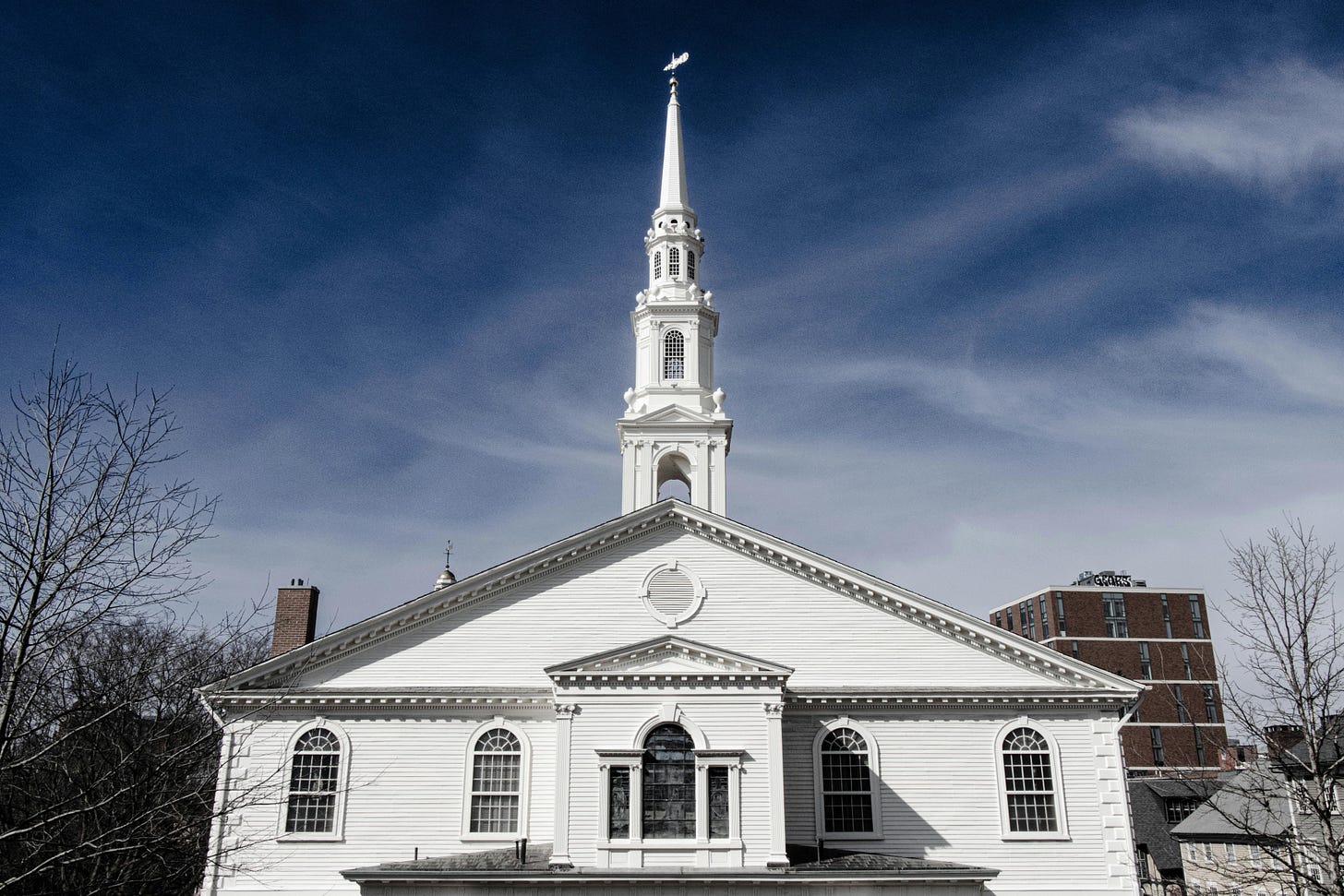

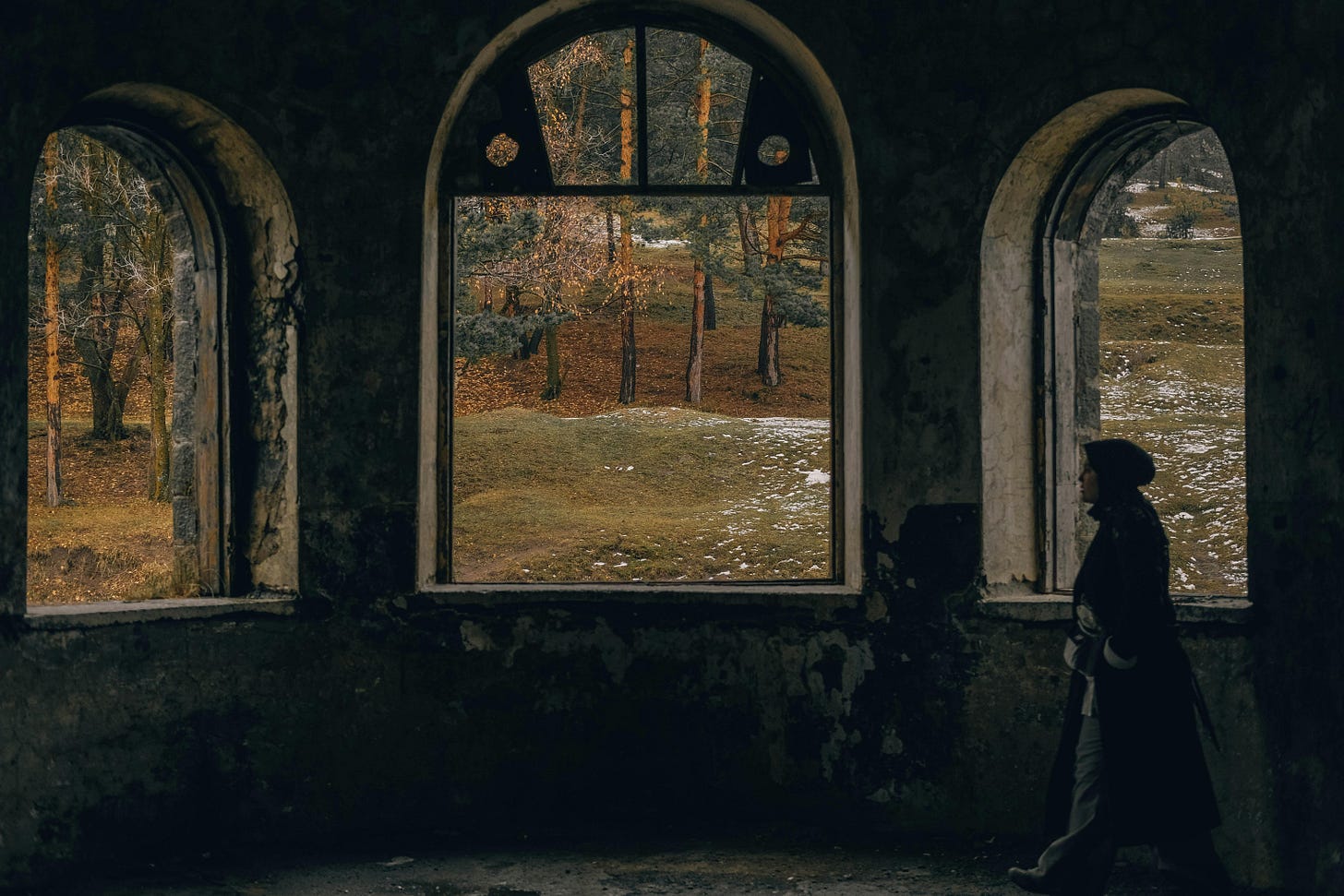
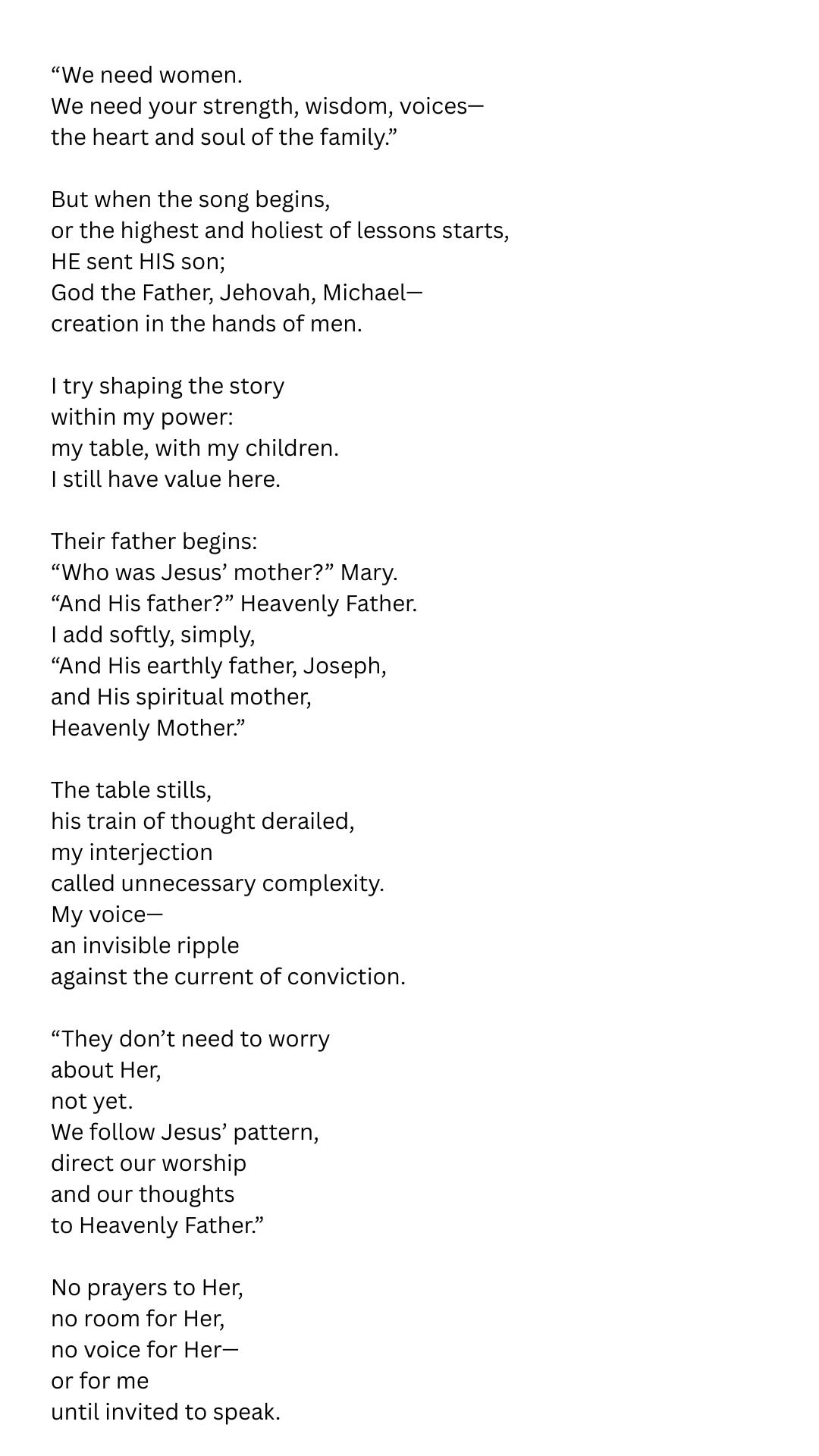

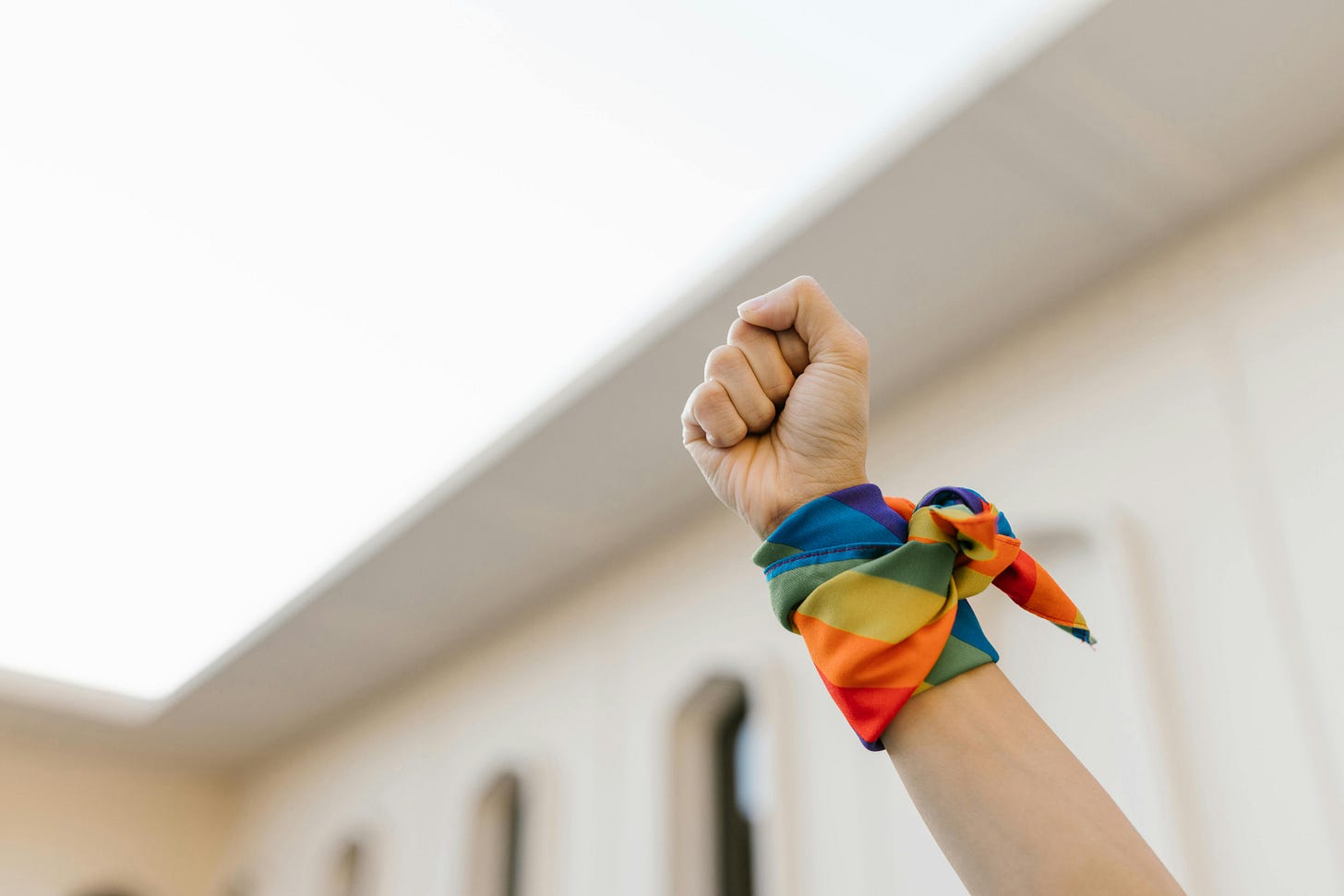



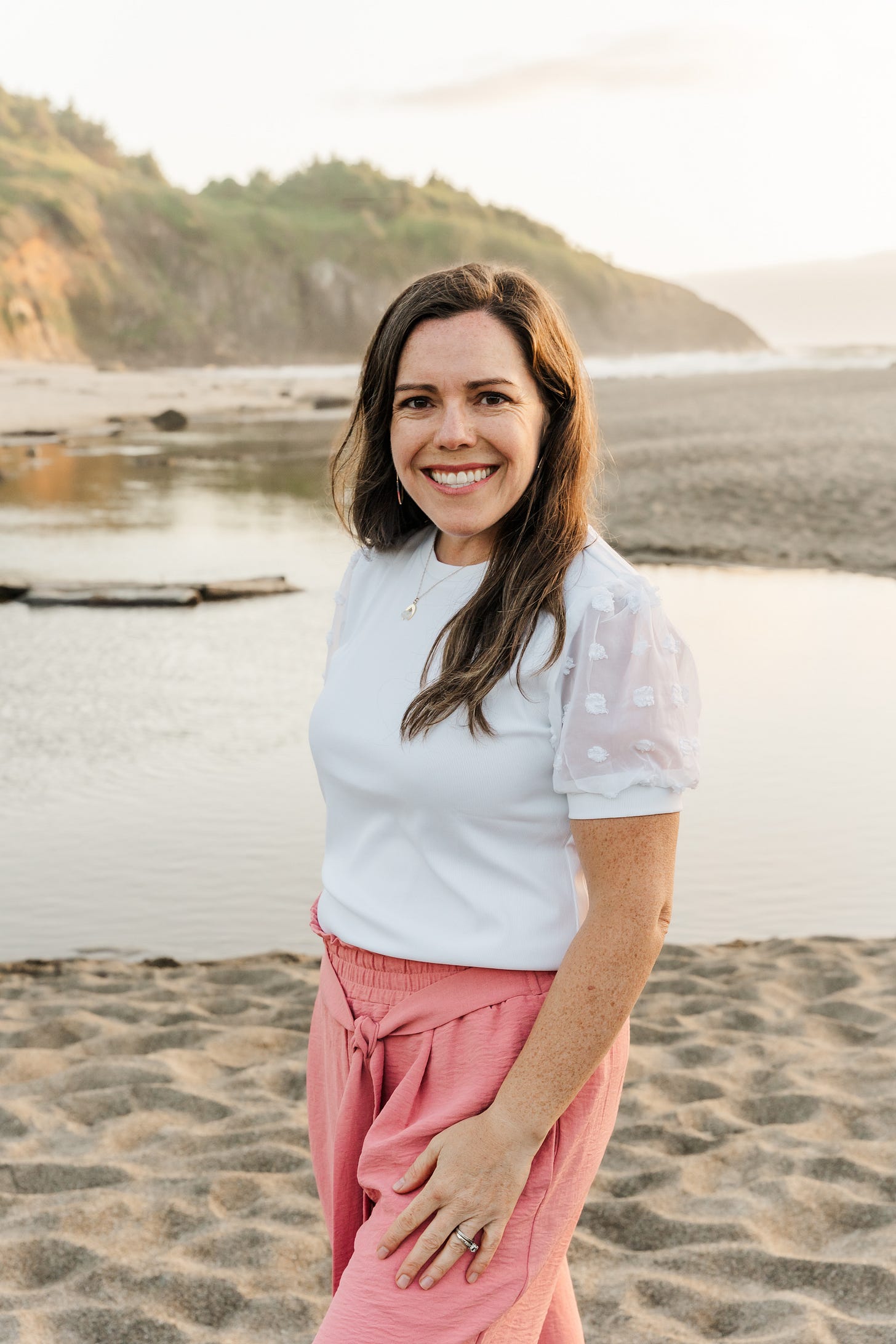
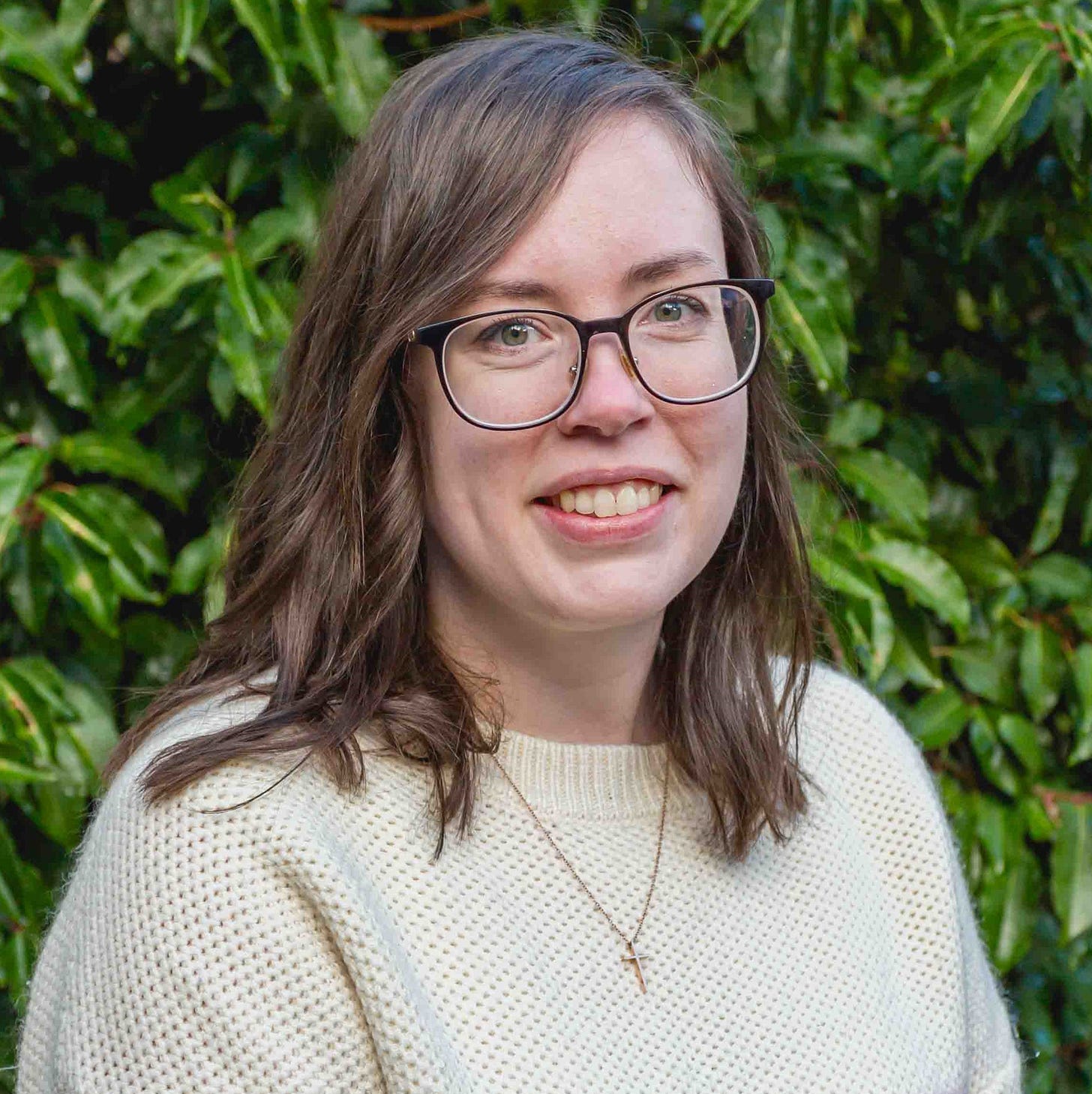
Re: Rachael's essay: This desire to punish people is mind-boggling, and just so needlessly cruel. Even considering excommunication was unnecessary. That a bishop jumped straight there, then learned he could do it, then acted on it, simply to punish a family for leaving--I mean, is it any wonder that people are leaving the church when this is how leaders act? It's not like the cruelty only comes up at the way out.
There is an adage going around the Internet that I'm sure we've all seen--essentially, people aren't leaving the church (meaning Christianity generally) because they don't love Jesus. They're leaving because they don't find Jesus in church.
If we truly understood that everyone is equal (including that Heavenly Mother is equal to Heavenly Father), it would heal so much hurt. ❤️🩹 You cannot build unity/Zion and keep othering all the people in the world who aren't cisgender, straight males.